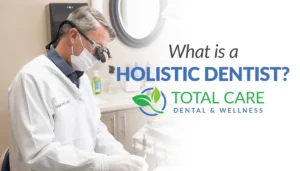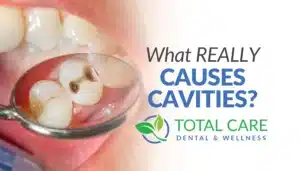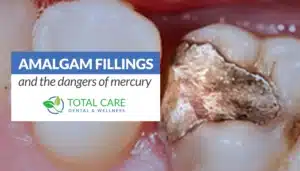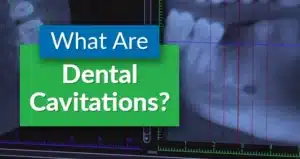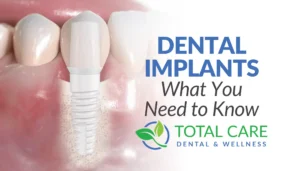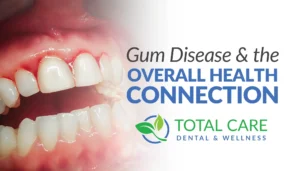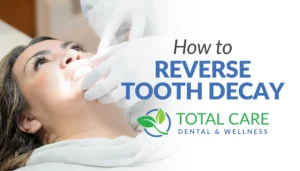Dental Implants: What You Need to Know
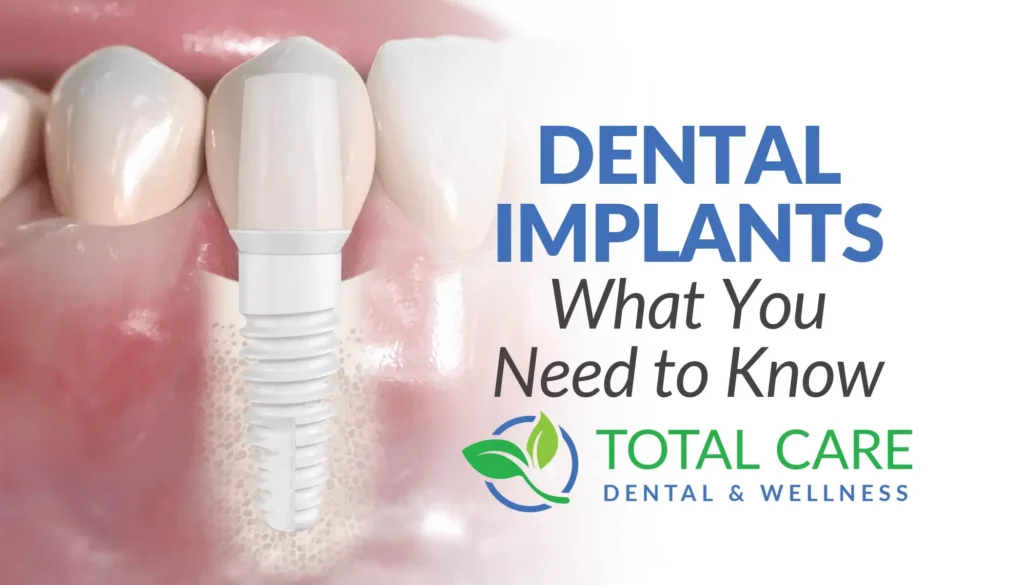
So far we’ve talked mostly about the decision making process behind needing or wanting to remove teeth. But another question remains: If you do choose to have your tooth removed, how do you replace it?
This chapter covers the four major options.
Option #1 For Missing Teeth - Do Nothing
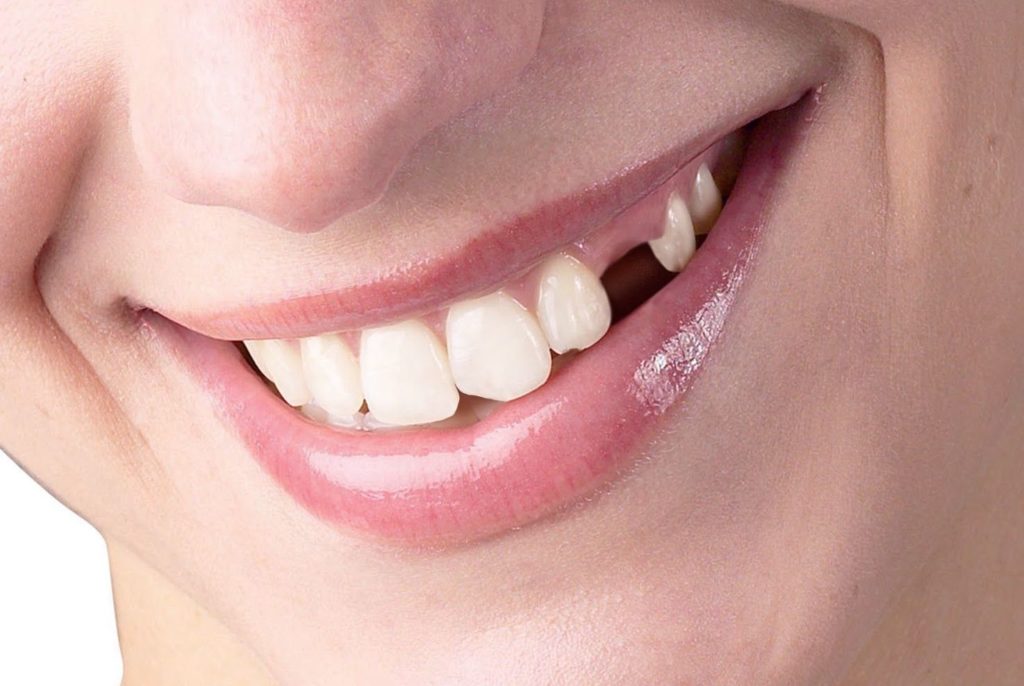
Leave the space there and don’t replace the tooth.
- Pros—This is the least traumatic and least expensive option.
- Cons—Teeth work in relation to one another. (Below this concept is explained)
What You Need To Know
- If you remove a top or bottom tooth, the tooth above or below it will move up or down, trying to find something to chew against. This throws the alignment of the bite off. Ask your dentist if the tooth you are having removed will be one that will affect the other teeth if it isn’t replaced.
- The bone stays where it is holding a tooth. When your tooth is removed, the jaw bone that was holding your tooth in place will slowly deteriorate away. This is particularly true if you have a top back tooth removed. This will make it more difficult to have an implant placed later, and may affect the teeth next to space as the bone pulls away from those teeth as well.
Option #2 For Missing Teeth - Replace It With Something Removable
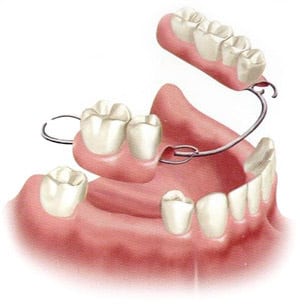
This is called a partial denture or “flipper” if it’s replacing a few teeth; it’s called a denture if replacing all of the teeth.
- Pros—This can be removed for cleaning, and can be easily repaired if it breaks. It is the least expensive way to replace the tooth.
- Cons—It does not look or chew like your natural tooth.
What You Need To Know
- Dentures have about a 50% loss in chewing ability from natural teeth. It will be difficult to chew things like salad, carrots, and other hard or crunchy foods with dentures.
- Also, you may end up in a bad situation if your denture breaks or gets lost at a bad time and you get stuck without it.
This does not give the bone a tooth to hold, so you will lose the jawbone over time. There is an average five-year life span for a denture because as the jawbone deteriorates away, the denture gets loose and has to be remade to fit the new shape of the bone.
Option #3 For Missing Teeth - Replace It With Something Glued In Place
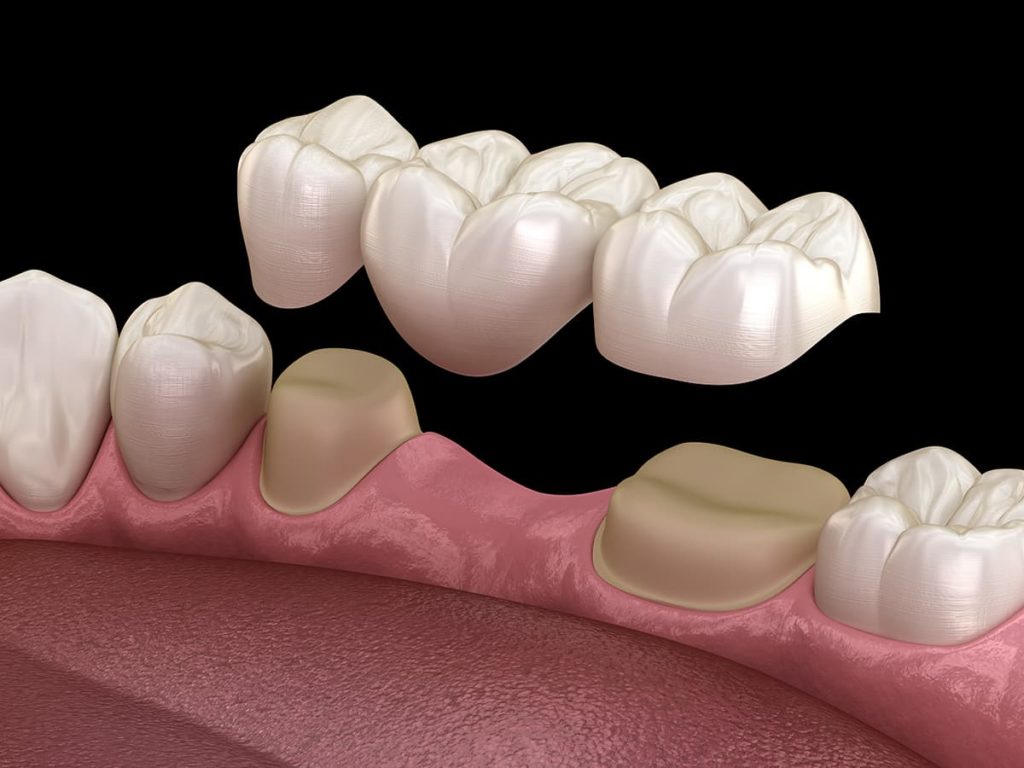
This is called a bridge and there are many variations.
- Pros—It does not come in and out. It looks and works similar to your natural teeth and can be completed in a few weeks.
- Cons—It does negatively affect the teeth holding the bridge.
What You Need To Know
- A bridge puts a lot of pressure on the teeth on both sides of the space that are holding the bridge. This can, and often does, lead to the supporting teeth being lost as well. In fact, more than 50% of teeth that are holding a bridge are lost within ten years of the bridge being placed.
- Lose a bridge, and you are now missing the original tooth and one or both of the teeth next to the missing tooth. You’ve now turned the one-tooth problem into a three-tooth problem.
- It is more expensive and does not help the bone stay there. It has a ten-year average life span (similar timeline to Option 2).
Option #4 For Missing Teeth - Replace It With A Root-Replacing Dental Implant
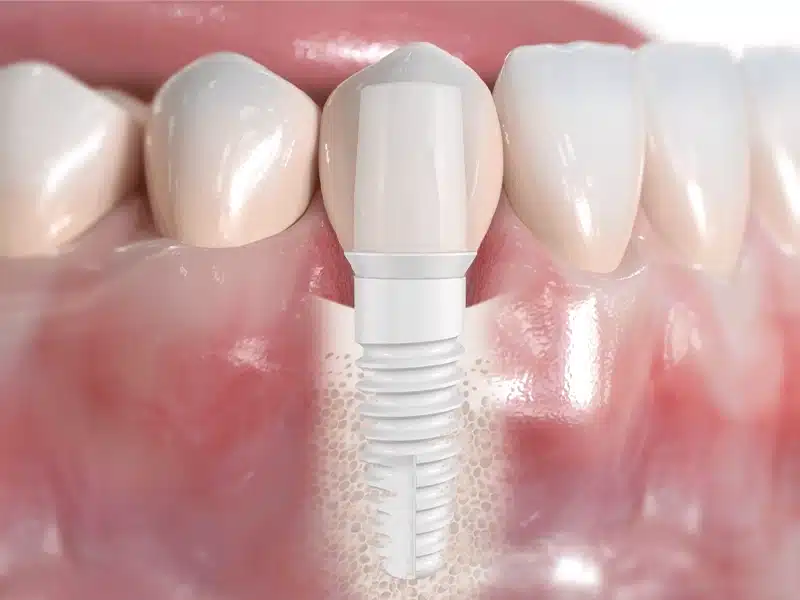
- Pros—This is the replacement that looks and works most like your natural tooth. It does not involve or damage any other teeth. It gives the bone a tooth to hold, so the bone does not go away and has a 20+ year life span.
- Cons—It takes 6-12 months to complete and is the most expensive option of the four.
What You Need To Know
- There are debates about the long-term health implications of dental implants, but most of these debates are in regards to titanium implants (see more information below).
- Zirconium implants have been in use for 25years in Europe, and long term success studies have been published. Mouths love zirconia implants.
Is a Dental Implant Safe?
Out of the four options provided to you, dental implants sound the most effective long-term – but does that mean they’re safe?
Let me start with myself as an example.
I have a dental implant, I replaced my husband’s tooth with a dental implant, and I rebuilt my son’s smile with dental implants after he had teeth broken in a baseball accident.
Why am I so confident in dental implants as the best option?
There are 30+ year studies showing long-term success and safety with dental implants. I trust this method much more than any other to give you the smile and long-term health you want.
This success is defined by whether the implant is retained in the mouth and functioning.
There are scores of research articles showing that implants do have a long-term retention rate. However, I must admit, there have not been a lot of definitive studies regarding the health implications of dental implants.
Here is what we know right now:
- Most research has been done testing titanium implants. The first implants were made of titanium, and that has been the standard in dentistry for many years.
- Recent changes in our environment, such as 4G wireless frequencies, are impacting the success of the implants. These frequencies cause metals to heat up. Think of a microwave oven. You can’t put metals into a microwave because they get too hot when the microwaves hit the metal. The waves in the air from all our wireless devices also hit metals and heat them up by 4-5 degrees Fahrenheit. This small increase heats up the titanium implant and bone surrounding the implant and may lead to bone loss and implant failure.
- There are many surprising sources of metals in our world today. Metals are hiding in food, personal care supplies like deodorant and shampoo, sunscreens, cooking ware, furniture, carpets, and more. These metals lead to metal overload in our systems, so the body becomes sensitive to all metals.
After much research and study and training, I am now exclusively placing zirconia implants.
Zirconia Dental Implants
These are manufactured from a metal-free material called zirconium oxide. It was identified in 1789 by German Chemist Martin Heinrich Klaproth.
Zirconium oxide is ivory in color making it similar to the color of the natural tooth. Zirconium can also transmit light, making it very esthetic.
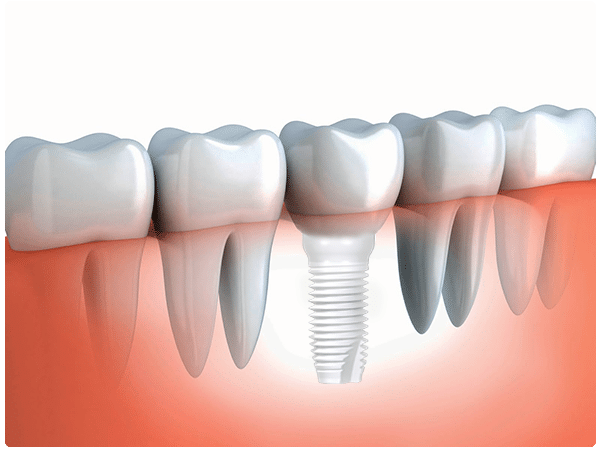
Zirconium oxide implants have outstanding mechanical properties, good stability, high biocompatibility, and high resistance to scratching and corrosion.
Here are some more reasons to choose zirconia implants:
- Excellent esthetics
- Natural white color
- Biocompatible–research shows no adverse immunologic, tissue, or bone reactions to zirconia implants.
- Preservation of bone– same success rates as titanium implants.
- Better gum health– reduced plaque on implant and tissues, leads to better soft tissue healing and implant success at bone level.
- Neutral energy– doesn’t interfere with the meridians
- First choice in patients with titanium allergy
Keep reading to find out more about the titanium vs. zirconia debate.
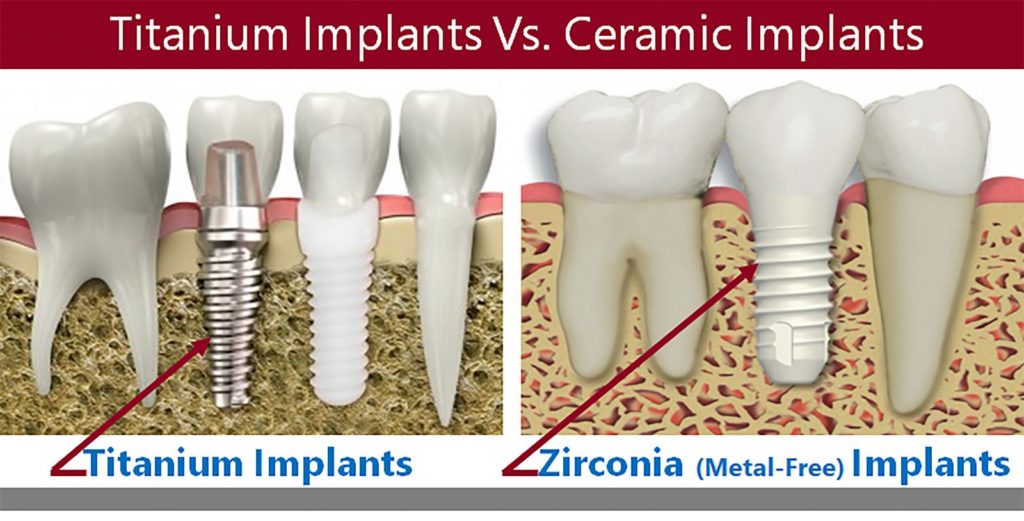
There are many differences and distinctions to consider, but as a holistic dentist, it was the long-term health and esthetic implications that most convinced me to switch over to zirconia only.
A few more facts about dental implants with zirconia:
- The meridian or shared energy pathways are not blocked by zirconia implants the way they are with titanium.
- I don’t have to be concerned about them heating up when people are using a cell phone.
- I don’t have to cover and mask the gray color of the titanium when I’m restoring them because zirconia implants are white.
- I don’t have to worry about adding to metal overload in a patient’s body, which can happen when you add metal to an already toxic body. Environmental metals are found in foods and other products we use every day.
- I don’t have to wonder what that metal is doing to the surrounding bone and tissues and the immune system. There are brand new studies that show the immune system never really shuts down around the titanium implants.
While research continues to grow, I am confident in the success of zirconia implants through stories from my patients and thousands of other patients with better health and strong, beautiful zirconia implants.
I believe Zirconia dental implants to be the best replacement for teeth today!
Schedule Your New Patient Exam With Total Care Dental & Wellness
With a comprehensive exam, you’ll receive:
- A low dose cone beam 3d Dental Xray (CBCT)
- Tooth Xrays
- Dental photographs
- A comprehensive gum exam with an intraoral scan
- A comprehensive oral exam by a Total Care Doctor
- Jaw joint exam
- Oxygen, Sleep, and Airway Evaluation
You will leave the appointment with a report of findings and treatment recommendations from your doctor and care coordinator. Finances, scheduling, and other instructions will also be provided.

